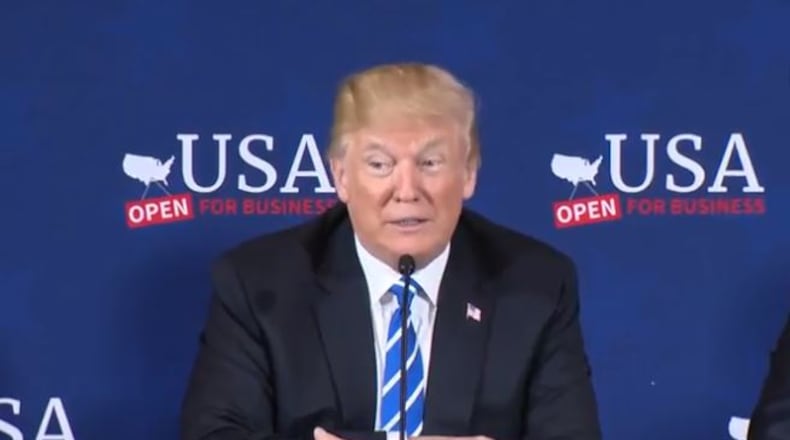As lawmakers in the House and Senate return to Capitol Hill after a two-week Easter break, they arrive back at the U.S. Capitol this week facing an increasingly frustrated occupant of the White House, as President Donald Trump has made clear in recent days that he wants action from the Congress on immigration and other issues, and wants it done now.
"We have immigration laws that are laughed at by everybody," the President told reporters last week at the White House. "And it's got to be changed."
But while Mr. Trump has repeatedly pressed for action in Congress, the votes simply aren't there in either the House or Senate for major immigration changes, as shown by a series of March votes in the Senate related to the DACA program.
Here's what to look for as lawmakers return:
1. Trump wants action on immigration. While lawmakers were out of town, the President was venting his frustration about the lack of action on illegal immigration, demanding that Congress close loopholes which he says make it difficult to deport people who get into the U.S. illegally. "We have horrible, horrible, and very unsafe laws," the President said, as aides told reporters that a new legislative package of immigration changes would be sent to Capitol Hill. But the calculus remains the same in Congress - the get-tough measures backed by the President don't have a majority in either the House or Senate. Both parties should expect to hear more from the President on this issue, but it's not clear that will result in any kind of new laws.
2. Will the House even vote on a Trump immigration plan? Republicans have talked for months about voting on a plan related to immigration, but the GOP hasn't been able to put together anything so far which can get enough votes to be passed - a common theme for the GOP in recent years. The current Republican plan from Rep. Bob Goodlatte (R-VA) would incorporate many measures to tighten immigration laws which are backed by the President, while providing a temporary, renewable legal status for DACA illegal immigrant "Dreamers." That DACA provision isn't acceptable for a number of more moderate GOP lawmakers, and so Republicans can talk about immigration, but have no vote scheduled on anything at this point. That's going to get more notice as the President makes more noise on the subject.
3. Trump actions on trade worry both parties. Let's imagine a world where a Democratic President gets in a trade fight with China, and each country starts slapping the other with tariffs. One might expect a huge reaction from Republicans against that. So far, while some voices have raised concern, there's no push in Congress to block any new Trump tariffs - we'll see if that changes as lawmakers return, especially in the Senate, where every single Senator has a farm constituency, something that is not true in the House. The Farm Lobby is also worried. "The Administration knew that if it imposed tariffs on Chinese goods, China would retaliate against U.S. agriculture," said Sen. Charles Grassley (R-IA). "I warned President Trump as much in a White House meeting in February." But the President is clearly doing what he wants to do on China and trade.
4. GOP ignores Trump calls to end Senate filibuster. More and more, Mr. Trump is demanding that Senate Republicans use the 'nuclear option' and get rid of the filibuster rule, in order to speed action on his legislative agenda. The President wants that rule changed so he does not have to entertain the idea of compromise with Democrats, as the 51-49 GOP edge has been made even slimmer by the medical absence of Sen. John McCain (R-AZ). Some day, the Senate might get rid of the cloture rule, established almost 100 years ago after an outcry led by President Woodrow Wilson. But GOP Senators are not ready to lead that charge right now. The irony is that getting rid of the filibuster in the Senate has long been a goal of more liberal groups in Washington.
5. Trump also wants action on his nominations. Instead of legislation, the Senate will again spend another week slowly grinding through a series of judicial and executive nominees by the President. Democrats have made the process about as enjoyable as a visit to the dentist, by insisting that up to 30 hours of debate be used on many nominations - as allowed for under Senate rules - even after a filibuster has been broken by the Senate. But some of Mr. Trump's high-profile choices aren't even getting to the stage of a floor vote - not because of Democrats - but because of the opposition of a few GOP Senators. Among those at dead stop, picks like NASA nominee Rep. Jim Bridenstine (R-OK). "The current nominee doesn't have the votes," said Sen. Bill Nelson (D-FL), who has led the charge against Bridenstine. The key GOP opponent of Bridenstine right now is Sen. Marco Rubio (R-FL).
About the Author



